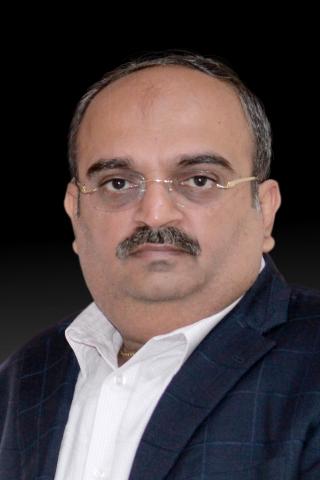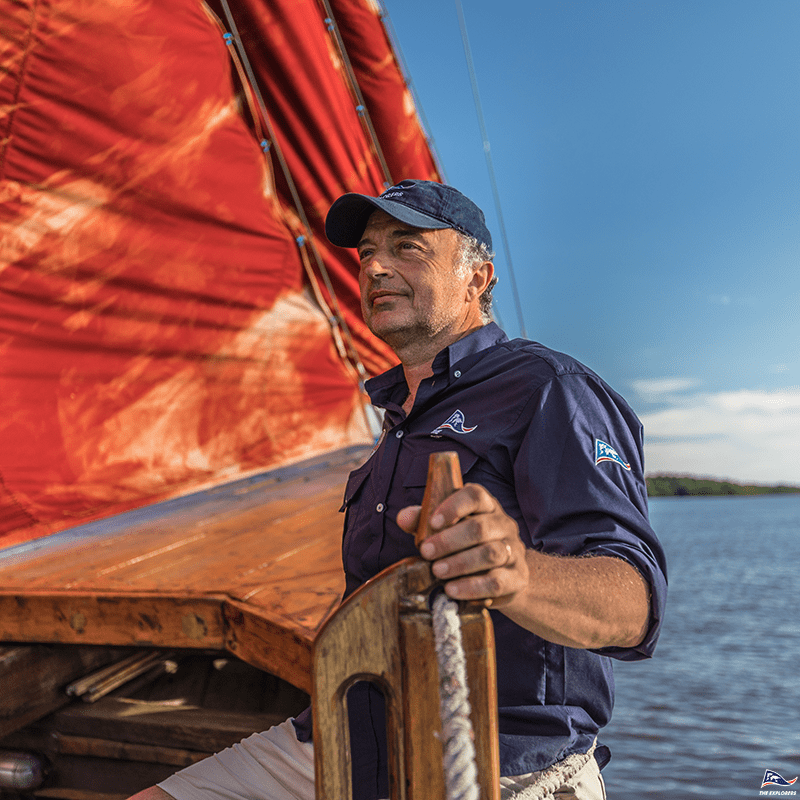- Chris Chinnock of the 8K Association sees “a serious problem in the situation” and refers to technology “as one of the options to reach a solution”.
- Prashant Chothani, of Travelxp, is optimistic and believes that “everything will be fine”, although the Commission “must make a decision as soon as possible”.
- Olivier Chiabodo, CEO The Explorers: “I trust and hope that the big companies will work in such a way so that 8K screens can be allowed in Europe.”
The experts will give their opinion on the current continental debate on the European regulation of 8K televisions and the future of these devices within the framework of the eighth edition of the 4K HDR Summit, which is being held at the National Digital Content Center in Malaga .
Chris Chinnock, Executive Director of the 8K Association has spoken about the problem that would arise from the European Union’s ban on 8K televisions. “The measure that has been taken has to do with the power consumption of televisions. The problem is that the moment when the regulation was established and the limits for 8K televisions were defined, it was in 2017.

However, a point to take into account when establishing the measure and that, according to Chinnock, was not taken into account is that “at that time 8K televisions were not sold nor was there sufficient data on which to establish power consumption requirements. . So they decided that 8K TVs should consume the same as 4K. But this cannot be the case, so there are no 8K televisions that can meet the requirements. This is a serious problem.”
The power consumption of an 8K television will always be greater than that of a 4K one. Chinnock is clear about why. “The fundamental problem with regard to the power consumption of 8K televisions is that when going from 4K, the number of pixels is multiplied by four on a screen of the same size, so the gap through which the light passes gets much smaller so the backlight has to be brighter to maintain the same front-on-screen brightness”
With Europe banning 8K TVs, the Executive Director of the 8K Association has possible solutions in mind. “There are two options. You can continue to work on the technology in order to create an infrastructure that allows more light to pass through the panel or create a ‘European mode’ that manages to pass the requirements, although no consumer would like this mode.
Today it is even difficult not to buy a TV that is not 4K. Many times, film directors themselves prefer to record in a higher resolution than what they later deliver to consumers. “If you want to broadcast in 4K, you better shoot in 8K or 12K and deliver it in 4K. Although the reality of the ecosystem that surrounds 8K today is not entirely good, it does not mean that 8K is dead. I am still optimistic about the future”, affirms the Executive Director of the 8K Association.

Travelxp previews, present at the 4K HDR Summit
Prashant Chothani, CEO of Travelxp, will also participate in the eighth edition of the 4K HDR Summit in order to show the progress that 4K has brought to this company. In Chothani’s own words, “4K is very important for producers or for any station or program. I want to show people what 4K can do for you if you invest at the right time. Maybe they can see 8K as an early opportunity and turn it into a success story.”
Regarding the possible ban by the European Union on 8K televisions, Prashant Chothani is clear. “If the European Commission bans the sale of 8K TVs, manufacturers must come up with a solution. It remains to be seen if they can make 8K televisions consume less but have the same quality in that number of pixels. It is a technological challenge. I remember a few years ago that the same thing was also discussed about the consumption of 4K televisions.”
Chothani is optimistic that a solution can be found sooner rather than later. “Technologically, things are getting more and more advanced so they may be able to fit within the limits set by the Commission. I think everything will work out. If they don’t get it and 8K leaves the market, the ecosystem itself would have a problem, so the Commission must make a decision as soon as possible.
Travelxp pioneered the 4K HDR ecosystem. It allows its viewers to enjoy more than 1,000 hours of 4K HDR content across more than sixty countries, reaching more than 200 million homes.

For Olivier Chiabodo, CEO of The Explorers, who will also speak at the 4K HDR Summit 2022 about all the productions he makes around the world in 8K, in relation to the ban on 8K televisions by the EU, he is optimistic: “I trust and I hope that big companies like Sony or Samsung will work on the 8K TV screen format so that it can be allowed in Europe.” “I think 8K in about 5 or 10 years is going to be the high-end format. I always prefer 8K because it’s the best quality today.”
Reflections as interesting as this intense and current debate on the European regulation of 8K televisions can be enjoyed at the 4K HDR Summit 2022, which can be followed through the Medina Media Events platform, prior registration, now available through the web of the event. The 4K HDR Summit agenda is now available on the official website.
The eighth edition of the 4K HDR Summit is sponsored by: National Pole of Digital Content, Malaga City Council, Fycma, Junta de Andalucía, ATEME, Fraunhofer, The eighth edition of the 4K HDR Summit is sponsored by: National Pole of Digital Content, Malaga City Council, Fycma, Junta de Andalucía, ATEME, Fraunhofer, Optiva Media, Canal Sur Radio y Televisión, Grupo ADM, Mediakind, Microsoft, Synamedia, Nokia, Hispasat, Axión, Cellnex, Eutelsat, Rohde & Schwarz, Canon, Sapec, Mome, Vestel, SONO, Hurí, Lavinia, Univrse, Colección Museo Ruso, UHD Spain, and Europa Creativa Media Desk Andalusia.